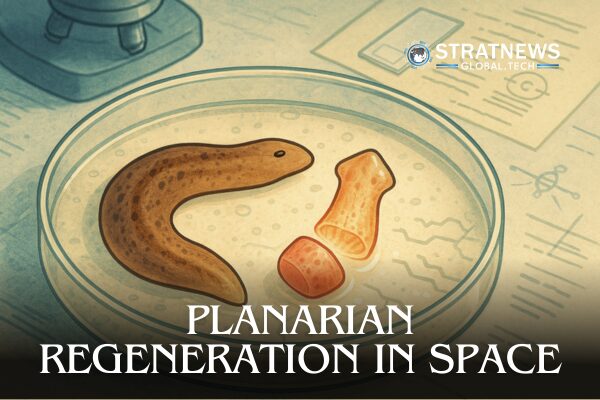Shenzhou-20 Begins Planarian Regeneration Study Aboard China’s Space Station
China’s Shenzhou-20 crew has launched its first experiment focused on planarian regeneration aboard the country’s space station, marking a key step in understanding how the space environment influences biological processes.
Studying One of Nature’s Most Resilient Organisms
Planarians, simple flatworms with a lineage stretching back over 520 million years, are widely used in biological research due to their extraordinary ability to regenerate. When cut into pieces, each segment of a planarian can regrow into a complete organism—capable of forming new muscles, skin, intestines, and even a fully functional brain. This ability can be repeated indefinitely, making them ideal for studying tissue repair and cellular development.
Researchers aim to uncover how microgravity and other space conditions influence the physiological behaviour and regenerative capacity of these unique organisms. They also plan to explore the molecular mechanisms behind any changes observed during the experiment.
Advanced Equipment in Orbit
Inside the Wentian laboratory module, astronauts monitored the planarian samples using the station’s biotechnology experiment cabinet. The crew collected solid culture samples using a scientific glovebox, which were then stored for further analysis. These materials will be returned to Earth, where researchers will study how space affects the microbial processes involved in tissue regeneration.
This experiment builds on earlier biological studies conducted aboard China’s space station, which included tests involving zebra fish and fruit flies.
More Experiments to Come
The planarian study is just the beginning for the Shenzhou-20 mission. The crew is scheduled to carry out 59 more scientific experiments and technology demonstrations. These will span fields such as space life sciences, microgravity physics, and advanced space technologies.
Future studies are set to include the cultivation of vascularised brain organoid chips, investigations into soft matter non-equilibrium dynamics, and the preparation of high-temperature superconducting materials.
With each experiment, China continues to advance its contribution to global space science and regenerative biology.
with inputs from Reuters


